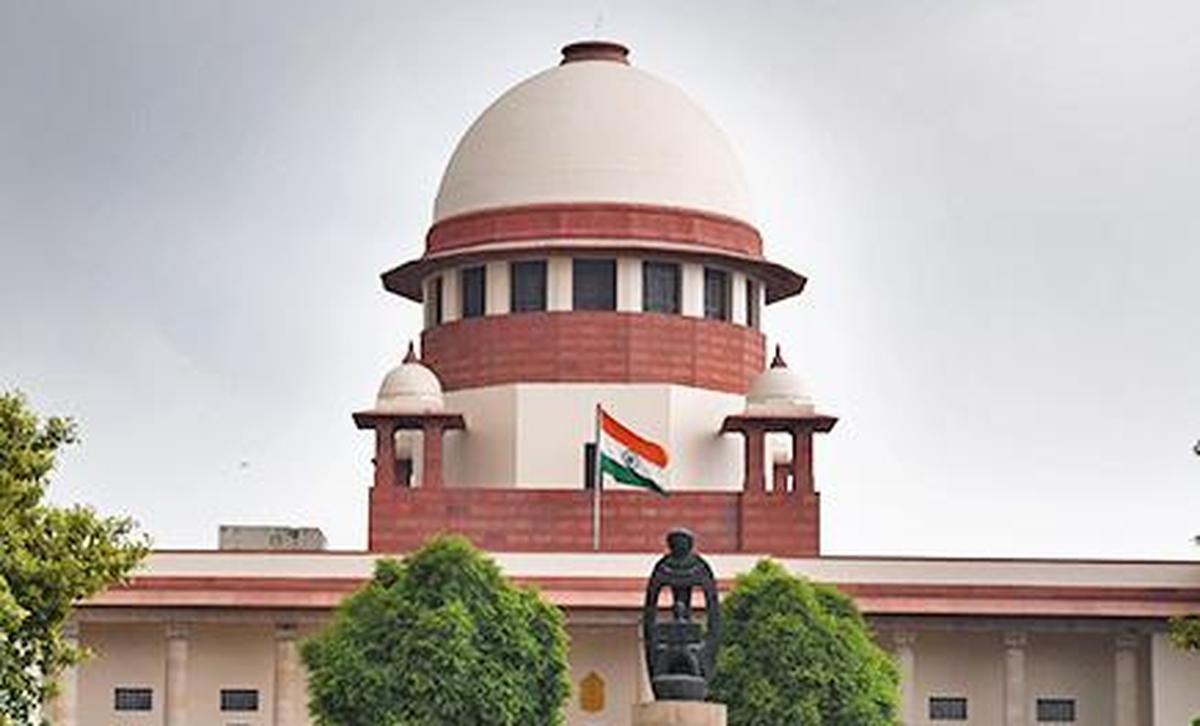Accessibility for Disabled Persons

- 13 Nov 2024
In News:
Recently, the Supreme Court of India delivered a significant ruling affirming that the right of persons with disabilities (PwDs) to access environments, services, and opportunities is a fundamental human right. The judgment was made in the case of RajiveRaturi vs. Union of India &Ors. and is based on a report submitted by the Centre for Disability Studies (CDS) at NALSAR University of Law.
Key Points of the Judgment:
- Social Model of Disability:
- The Court upheld the social model of disability, which focuses on societal changes to ensure the full inclusion and participation of PwDs.
- The model emphasizes removing social barriers and creating an inclusive environment that accommodates all disabilities.
- Challenges Faced by PwDs: The ruling highlighted various challenges faced by PwDs, as identified in the CDS NALSAR report:
- Accessibility Barriers: Significant gaps exist in accessibility measures across public spaces such as courts, prisons, schools, and public transport.
- Intersectionality & Compounded Discrimination: PwDs often face multiple layers of discrimination, such as caste, gender, and socio-economic status, which compound their marginalization.
- Inconsistent Legal Framework: The RPwD Act (2016) mandates mandatory compliance for accessibility standards, but Rule 15 under RPwD Rules (2017) only offers self-regulatory guidelines, which the Court found insufficient.
- Court's Analysis of Rule 15:
- The Court declared Rule 15(1) of the RPwD Rules, 2017, as ultra vires, meaning it is inconsistent with the mandatory compliance intended by the RPwD Act.
- The Court stressed the need for stronger legal and regulatory enforcement to ensure access for PwDs.
- Principles of Accessibility: The Court outlined several essential principles for achieving accessibility:
- Universal Design: Environments and services should be universally accessible to all, including PwDs.
- Comprehensive Inclusion: All types of disabilities, both visible and invisible, should be addressed.
- Assistive Technology Integration: Using technology to support PwDs in daily activities.
- Stakeholder Consultation: PwDs and disability advocacy groups must be consulted in planning and designing accessible spaces.
- Two-Pronged Approach:
- The Court recommended a two-pronged approach:
- Ensure accessibility in existing infrastructure: Modify and update current institutions and services to become accessible.
- Design future infrastructure with accessibility in mind: Plan and build new spaces and services that are inclusive from the start.
- The Court recommended a two-pronged approach:
Legal and Policy Framework:
- Rights of Persons with Disabilities (RPwD) Act, 2016:
- The RPwD Act mandates various accessibility standards and provisions to protect and promote the rights of PwDs, in alignment with India’s obligations under the United Nations Convention on the Rights of Persons with Disabilities (UNCRPD), which India ratified in 2007.
- The Act defines a person with a benchmark disability as someone with at least 40% of a specified disability.
- International Obligations:
- The ruling reaffirmed the importance of Article 9 of the UNCRPD, which emphasizes the right of PwDs to access the physical environment, transport, and information and communication technologies.
- Government Initiatives: The judgment highlights several initiatives aimed at improving accessibility:
- Accessible India Campaign (Sugamya Bharat Abhiyan): A nationwide effort to make public spaces and services accessible to PwDs.
- Assistance for Aids and Appliances: Government schemes to provide PwDs with necessary aids and appliances.
- Unique Disability Identification Portal: A platform for PwDs to register and obtain a disability certificate.
Notable Judicial Precedents:
The Court referred to several previous rulings that recognized the right to accessibility:
- State of Himachal Pradesh v. Umed Ram Sharma (1986): The Court included the right to accessibility under the Right to Life (Article 21) of the Constitution.
- Disabled Rights Group v. Union of India (2017): The Court directed that educational institutions ensure reserved seats for PwDs.
